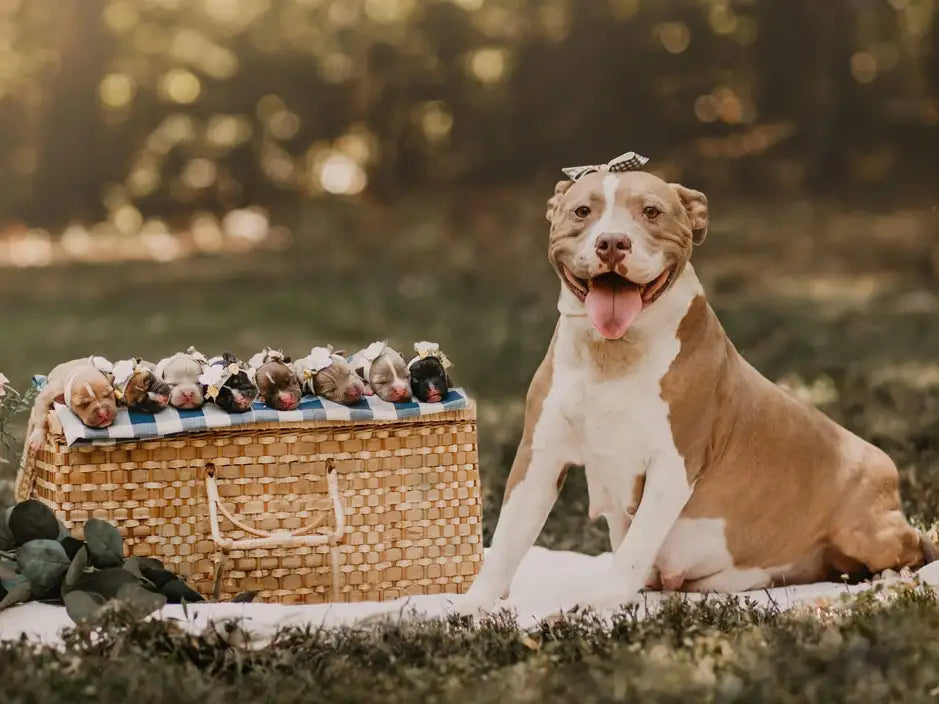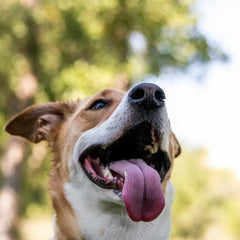Pregnancy is a critical period in a dog's life that requires special attention, especially when it comes to diet. As a responsible pet owner, you'll want to make sure your pregnant pooch gets the nutrients she needs for both her well-being and that of her puppies. In this article, we delve into the intricacies of feeding a pregnant dog.
Nutritional Needs
Understanding the nutritional needs of a pregnant dog is crucial for her health and the development of her puppies.
Importance of Balanced Nutrition:
- Foetal Development: Proper nutrition is necessary for the puppies to develop correctly.
- Mother's Health: The mother dog needs additional nutrients to sustain her energy levels during pregnancy.
Table: Life Stage vs Nutritional Needs
Life Stage |
Protein |
Fat |
Calcium |
| Adult | 18% | 5% | 0.6% |
| Pregnant/Lactating | 22% | 8% | 1.2% |
Increasing Caloric Intake
As pregnancy progresses, the energy requirements of the dog increase.
Guidelines for Caloric Intake:
- Early Pregnancy: No need for extra calories.
- Mid-Pregnancy: Increase caloric intake by 10-15%.
- Late Pregnancy: Up to 25-50% more calories are needed.
Daily Meal Plans:
- Morning: Protein-rich meal with a source of carbohydrates.
- Evening: Lighter meal, but still nutritionally balanced.
Key Nutrients
Certain nutrients are particularly important during pregnancy.
Essential Nutrients:
- Protein: For tissue development.
- Fatty Acids: For brain and vision development.
- Calcium and Phosphorus: For bone formation.
Sources of Key Nutrients:
- Protein: Chicken, turkey, fish.
- Fatty Acids: Fish oil, flaxseed.
- Calcium: Dairy products, bone meal.
Avoiding Certain Foods
Not all foods are safe for pregnant dogs, and some should be strictly avoided.
Foods to Avoid:
- Raw Meat and Fish: Risk of bacteria and parasites.
- Onions and Garlic: Can cause anaemia.
- Chocolate: Toxic to dogs and can cause various complications.
Table: Foods to Avoid and Alternatives
Food to Avoid |
Alternative |
| Raw Meat | Cooked Lean Meat |
| Onions | Carrots |
| Chocolate | Dog-Safe Treats |

Post-Pregnancy Diet
Once the puppies are born, the mother's dietary needs change once again.
Post-Pregnancy Nutritional Shift:
- Increased Protein: For milk production.
- Decreased Calories: Gradually revert to pre-pregnancy caloric intake.
Weaning Phase:
- Transition to Solid Food: The mother's caloric intake can be reduced as puppies start eating solid food.
- Nutrient-Rich Kibble: Opt for a high-quality dog food suitable for lactating mothers.
FAQs
Q: How often should I feed my pregnant dog?
A: Frequency may vary, but small, multiple meals are often recommended, especially in late pregnancy.
Q: Can I continue feeding my dog her regular adult food?
A: While it may be okay in early pregnancy, nutritional needs change and more calorie-dense, nutrient-rich food is advisable as pregnancy progresses.
Q: Are human foods like fruits and vegetables safe for my pregnant dog?
A: Some are safe and can be beneficial, but it's essential to know which foods are dog-safe. Always consult your vet before introducing new foods.
Conclusion
Feeding a pregnant dog requires a keen understanding of her changing nutritional needs. From increasing caloric intake to focusing on key nutrients and avoiding certain foods, it’s crucial to adjust her diet for the health of both the mother and her puppies. Always consult your vet for tailored advice to meet your dog's specific needs during this critical life stage.




